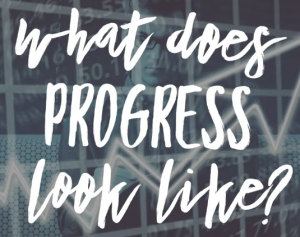Helping Higher Ed Students with Access to Accessible Course Material During the COVID-19 Crisis (W)
 The DAISY Consortium has launched a series of free weekly webinars in response to the many challenges presented by the Covid-19 crisis and to feedback received from our recent Inclusive Publishing survey where our readers asked for more online resources. April 1st saw the launch of this series with the first webinar focusing on solutions for higher education students during this time when their learning is being greatly impacted.
The DAISY Consortium has launched a series of free weekly webinars in response to the many challenges presented by the Covid-19 crisis and to feedback received from our recent Inclusive Publishing survey where our readers asked for more online resources. April 1st saw the launch of this series with the first webinar focusing on solutions for higher education students during this time when their learning is being greatly impacted.
This page contains:
- Full Video of the Webinar
- Speaker information
- RedShelf Responds information
- VitalSource Helps information
- Other information and related links
Full Video of the Webinar
Speakers
- Richard Orme, CEO DAISY Consortium—host and chair
- Erin Lucas, Senior Director for Digital Accessibility at RedShelf
- Rick Johnson, Founder and VP, Product Strategy at VitalSource
- Stacy Ray, Product Manager at VitalSource
This webinar looked in some detail at the programmes being offered by both organizations to assist students during this period namely RedShelf Responds and VitalSource Helps
RedShelf Responds
Features
- To ensure that all students have access to their course materials amidst the COVID-19 outbreak, RedShelf have partnered with the publishing community to provide up to 7 free ebooks from participating publishers in the US and Canada.
- More than 300k titles from 100+ publishers
- This opportunity is currently set to run through May 25 2020, but if students in Canada have different semester dates and require longer access this will be arranged
- Available to any student with a .edu student email address and in the case of organizations who use different email suffixes, alternative arrangements will be made
- Books added to My Shelf feature can be launched within the RedShelf ereader, a browser based reading system with many accessibility features including, Text-to-Speech controls, keyboard shortcuts, screen reader compatability etc.
- RedShelf have a dedicated accessibility team ready to respond to requests for accommodations and samples
Resources
- Program Overview: about.redshelf.com/redshelfresponds
- Student ebook Access: responds.redshelf.com
- Support and Resources: solve.redshelf.com
- Erin Lucas contact details: erin.lucas@redshelf.com
VitalSource Helps
Features
- VitalSource have made their Bookshelf program available to students, instructors and colleges during the COVID-19 outbreak who may need access in difficult circumstances—at home or elsewhere, both online and offline. Up to 7 titles may be accessed during this time.
- This opportunity is currently set to run through May 25 2020 in the US, April 30 in Canada and June 30 in the UK and Ireland. If colleges have different semester dates and require longer access this will be arranged
- Available to any student with a .edu student email address and in the case of organizations who use different email suffixes, alternative arrangements will be made
- The app can be downloaded for ease of use offline. Native apps are 100% capable of being accessed offline.
- The VitalSource Bookshelf is a digital learning platform and not simply an ereader (the webinar includes an excellent demo of the levels of navigation possible and the excellent compatability with Assistive Technology)
- Accessibility features include: screen reader support, visual adjustment modes for various different requirements, read aloud tools and rich learning tools
Resources
- Program Overview: https://support.vitalsource.com/hc/en-us/categories/360003328673
- Student ebook Access: bookshelf.vitalsource.com
- Student and Instructor Support
- Rick Johnson contact details: rick.johnson@vitalsource.com
- Stacy Ray contact details: stacy.ray@vitalsource.com
- VitalSource FAQs for publishers
Other Takeaways from this Webinar For Inclusive Publishing Readers
- Both RedShelf and VitalSource work closely with their publishing partners to ensure the highest level of accessibility within the content that they are providing. However if a publisher doesn’t provide alt text or correct links etc then this makes life very difficult. It is incumbent on the publisher to make sure that their ebooks have as many accessibility features as needed within the EPUB 3 set up—Born Accessible in fact.
- Both organizations run checks on the content they receive and, in some instances, can reject content if particular features have not been incorportated eg – VitalSource will reject at import titles that do not include a Text-to-Speech capability
- DRM free EPUB files can also be side-loaded into the VitalSource Bookshelf, enabling students to take advantage of a consistent, accessible reading environment.
- Download the PowerPoint Slide Deck (3.5 MB)
- Further Webinars in this series


 Our annual survey, looking at accessibility within the publishing industry, has, this year, revealed a very promising trend towards awareness building and born accessible content creation. We seem to be at a tipping point and our hope is that accessibility becomes the norm within the digital publishing world and that ebook building blocks are finally equipped to serve all readers.
Our annual survey, looking at accessibility within the publishing industry, has, this year, revealed a very promising trend towards awareness building and born accessible content creation. We seem to be at a tipping point and our hope is that accessibility becomes the norm within the digital publishing world and that ebook building blocks are finally equipped to serve all readers.